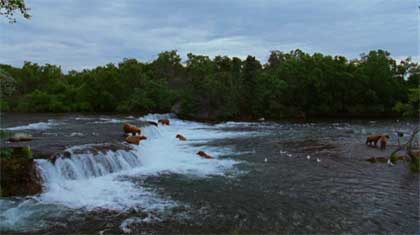
Sunday night at 8 p.m. ET (check local listings), PBS presents the latest multi-night documentary by Ken Burns:
The National Parks: America's Best Idea.You expect, and you get, endless arrays of stunning still and moving images of nature at its rawest -- gorgeous gorges, and so on. But what's so unexpected, and so uplifting and fascinating, are the human stories...
The National Parks runs nightly, Sept. 27-Oct. 2 -- Sunday through Friday -- and will gobble up more than a dozen hours of videotape, blanks DVDs or DVR time. Clear the room, because, just like a national park, this is a destination you'll be eager to revisit.
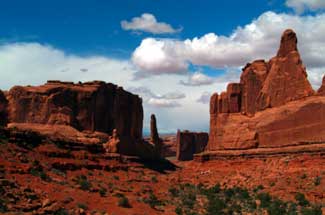
There's so, so much to learn here. If you're well-traveled, you'll smile at familiar sights, captured in period photographs and in swoon-worthy new film footage. But few people -- and an episode interviews one of them -- have been to all the country's national parks, so every episode is likely to transport you to a place you've never gone.
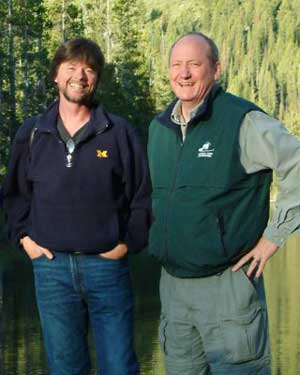
By the time National Parks is over, though, I'm betting there will be at least a few places you'll be busting to visit.
National Parks is produced by Burns and longtime collaborator Dayton Duncan (shown at right), and written by Duncan.
It's so clearly a labor of love for Duncan that, in the sixth and final installment, he shows his hand, and includes home-movie footage of his first family vacation to a national park, when he was nine.
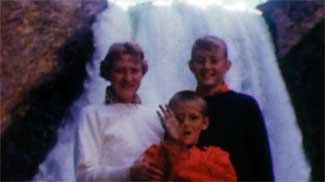
He and his family, leaving their Iowa home to visit a few parks in 1959, arrived in Yellowstone Park two days after a serious earthquake hit, 50 years ago -- and, like many people interviewed in this documentary, considers his first brush with nature on that scale to be wholly transformative. (That's him waving in the picture above.)
Episode one explains how Yellowstone became the country's first national park, and the next three episodes detail the slow, amazing path in took for American lands to be set aside for posterity. And watch for such special treats as vintage footage from film's early years, of adventurers tackling the Colorado River and Mt. McKinley in the early 20th century.
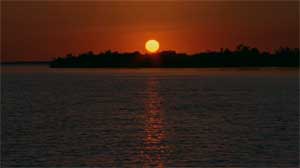
Geographically, the program spans the entire country, from volcanic Hawaiian lands and northwest glaciers to Florida's soupy Everglades. And in terms of including ideas, National Parks is just as all-inclusive.
Themes, obsessions and subjects from previous Burns works keep threading it and out of this narrative: slavery, baseball, Mark Twain, race, Abraham Lincoln, WWII, even Scott Joplin's ragtime music. But there are new figures to learn about here, in great and unforgettable depth.
John Muir. Stephen Mather. These people and their ideals are brought back to life, just as the issues facing the parks are brought to life in such uncomfortably timely segments as President Jimmy Carter's standoff with frontier-mentality dissidents in Alaska. Corporate Industrial interests and their designs on ravaging nature for profit is by no means a new story -- but, sadly, it's no less relevant today than when the giant sequoia were being felled and logged.
The National Parks, over its six powerful nights, shows us America the Beautiful.
In so doing, Burns and Duncan show us Television the Beautiful as well.